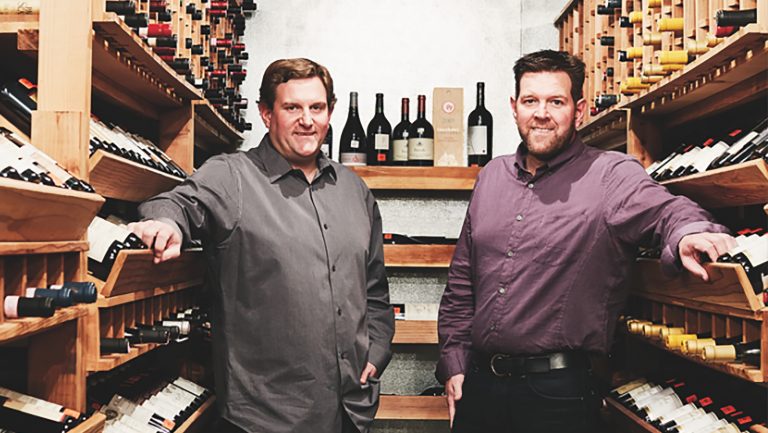To stand out in a crowded market of big-box stores and one-stop online shops, wine retailers must offer curated selections to attract and retain customers. But some operators go beyond standard purchasing practices—they work within direct-importing laws or loosely partner with local importers to bring in wines from producers they’ve discovered on the road.
Leveraging their relationships with importers can offer retailers advantages like exclusive selections and better prices, but the practice isn’t for everyone. When it works, though, it can bolster a retailer’s image while giving consumers access to unique wines.
Legalities of Exclusivity
The legality of buyers working with importers to curate exclusive selections varies by state. In New York, for instance, importers must post prices for all wines to ensure that buyers have equal access to the same wines at the same prices. Essentially, exclusive selections are illegal.

Don’t miss the latest drinks industry news and insights. Sign up for our award-winning Daily Dispatch newsletter—delivered to your inbox every week.
But in such states as California and Texas, it’s perfectly legal to purchase exclusive wines from an importer or to hire a third-party clearinghouse, a company that specializes in shipping and clearing wines through customs. “I can buy from a retail store in Paris and have [a clearinghouse] pick it up there,” says Jim Knight, the part owner and wine buyer for The Wine House in Los Angeles. “It’s a lot easier for us.” In California, retailers selling spirits alongside wine cannot have importing licenses, so buyers often work with clearinghouses to get wines through customs.
In Washington, D.C., retailers may apply for direct-importing licenses, which are not limited to a country or region. “We have been direct importing for 30 years,” says Elyse Genderson, the wine director for the D.C. shop Schneider’s of Capitol Hill, “since my father and uncle saw an opportunity to offer rare and unique wines to our customers.” Schneider’s is the exclusive local seller for all of its direct imports, and the practice is integral to the shop’s reputation.

Locals in Portland, Oregon, point to the state’s close-knit industry culture as a reason that both off- and on-premise buyers often work with importers to source customized selections. “Portland is a unique market because, until recently, we did not have any of the large national importers and distributors,” says Jeff Vejr, the winemaker for Golden Cluster in Oregon and co-owner of Portland’s Les Caves, a collaborative wine bar with partner Ovum Wines. “Oregon has a strong group of independent importers with whom we have long-standing relationships.”
In addition to pouring wines from its winery owners, Les Caves sources wines from around the world and works with local importers to bring them in as exclusive offerings. Not only does this practice offer guests a guided experience through wines Vejr has personally sought out, but, he says, it aligns with the establishment’s core philosophy. “Les Caves is our wine clubhouse,” he explains. “It should be filled with not only wines we produce but wines we discovered from places we’ve visited.”

Ed Paladino, the co-owner of Portland’s E&R Wine Shop, estimates that he has worked with importers to bring in selections from more than 100 wineries over the past 13 years. “We find it rewarding to share firsthand knowledge of these wines with our customers,” he says. “This kind of learning and experience are hallmarks of our small staff.” However, Paladino doesn’t ask that importers bring these wines in as exclusive selections, thus allowing the importers to benefit as well, since they can sell the wines to other accounts.
Approaching Importers
But how can retailers ask an importer to bring in specific wines, either exclusively or nonexclusively? Strong, mutually beneficial relationships are key, as Paladino has seen during E&R’s 20 years in operation. “There has been time to get to know folks well and vice versa,” he says. “At the same time, our partners have found favor with some of the wines we’ve partnered with, which fit their needs too.”
It’s also important to find the right importers to partner with. “Finding some synchronicity in ideas about wines, mutual needs, knowledge, and so on is important,” adds Paladino. He suggests maintaining an awareness of what’s happening in the market and the specific importer’s portfolio to assess how potential new wines might fit.
Michel Abood, the owner of Vinotas Selections, which has offices in New York City and San Diego, has never been approached about bringing in an exclusive wine for a retailer but would be happy to do so—as long as the wine has very small production. “It has to be small,” so that the retailer can purchase the whole allocation, he says. “Otherwise, I would want to sell it out of state. I can’t do that if I’m giving preferential prices to a friendly retailer.”
Abood does point out that this can be a catch-22 for producers newly entering the U.S. market. “This has caused issues in the past,” he says, “where I’ve found a wine I loved and wanted to sell nationwide, but a retailer was directly importing it and selling it retail at a price close to what I would sell it for, to my wholesalers.”

Value and Availability
There are other reasons retailers might want to import wines themselves or establish deeper relationships with specialized importers. Some say the practice allows access to tiny producers that fly under other importers’ radar, or specific SKUs that a producer’s importer chose not to bring in. “With all the importers in this nation,” says Knight, “if it’s not imported yet, maybe it’s not worth it—but there are always needles in a haystack.”
Wine shops that specialize in allocated or sought-after bottles also use these methods to increase quantities for individual SKUs. “I have to be in the Bordeaux futures business,” says Knight, “but in order to compete with everyone across the nation, I have to buy from négociants directly.” Though he always purchases The Wine House’s full allocations of sought-after wines through importers, Knight also imports directly to supplement quantities because, he says, “I never get enough.”
Direct importing also offers a pricing advantage over traditionally imported wines. “Our customers get incredible value for money with our direct-import wines since we cut out the middleman,” says Genderson. When Knight directly imports additional bottles of an allocated wine he already stocks, he averages the price of the two drops and offers that competitive pricing to his customers.
Depending on the state, direct importing or working with an importer to bring a specific wine into the U.S. has the potential to complicate both industry-wide pricing and the availability of specific SKUs. But when it makes sense for a retail buyer to employ these methods within state laws to import new wines into the U.S., the practices can benefit winery, retailer, and consumer alike. “The work is not simple or inexpensive,” says Paladino, “and it takes time, energy, and effort, [but] some may find it of merit.”
Courtney Schiessl Magrini is a Brooklyn-based wine journalist, educator, and consultant who has held sommelier positions at some of New York’s top restaurants, including Marta, Dirty French, and Terroir. She is currently the senior editor for SevenFifty Daily, and her work has appeared in Wine Enthusiast, GuildSomm, Forbes.com, VinePair, EatingWell Magazine, and more. She holds the WSET Diploma in Wines and Spirits. Follow her Champagne-fueled adventures on Instagram at @takeittocourt.


